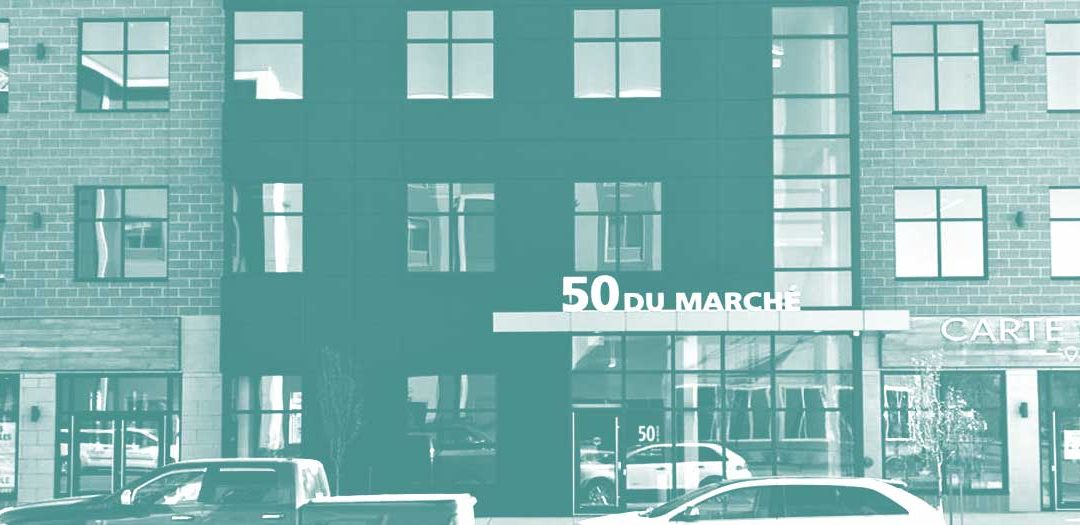The ADAPT Centre was created out of the need to help individuals overcome personal difficulties in their lives by empowering them to find news ways to adapt to … life.
Seeking to address instead the multiple mental health needs that we know exists in the community and cannot be met by our public mental health services. While these public services do their best to meet the demands, their interventions are often crisis oriented and time limited. Private services on the other hand, while expensive, can offer specialized interventions for specific populations, such as first responders, veterans and active-duty soldiers and police officers.
Adaptation is a crucial concept in developmental psychology, and we wanted to incorporate this concept both in practice and in branding. Hence, our ADAPT logo.
Initially, in 1995, the concept was to offer mental health services from several disciplines (psychology, social work, clinical sexology, occupational therapy, nursing) and in that spirit we started with both clinical and forensic psychology, and clinical sexology. But life had different plans in store for us and my colleagues moved on to other personal and professional endeavours outside our initial mission. Being at that time employed full time by Correctional Service Canada (CSC), I continued my individual and part time private practice until I retired from CSC in 2013, after 29 years, and continued doing private practice work while also working as coordinator of clinical stages for psychology doctoral students at l’Université de Moncton until 2016, at which time I switched to a full-time practice.
In 2018 I had the good fortune to move into our current location, in what is truly one of the newest and nicest building in Dieppe Centre Ville. I share our suite (230) at 50 rue du Marché with several other clinicians, all independent from each other’s, safe for those working in a group practice. For instance, while we occupy one office in our suite, the ADAPT Centre actually includes 4 clinicians: 3 clinical and forensic psychologists (one female, 2 males) and one doctoral Resident in Clinical Psychology.
At the same time that I began working in earnest on a full-time practice, it became untenable to work with a segment of individuals who need help with sexual disorders. Indeed, because of the group situation, it became unwise, and untenable, to bring individuals under conditional releases to sit in a waiting room where children, or other vulnerable individuals, may visit. We thus moved away completely from the therapy aspect of individuals dealing with the legal system.
As our practice expanded, we specialized more and more with first responders, capitalizing of our experience with the military, CSC and the RCMP (as mental advisor to their Hostage and Barricade Negotiator Team, not a member). Eventually, especially with the COVID pandemics, the demand became overwhelming, and I could no longer meet the demand, safe for a 12+ month wait period.
Early on after a full-time private practice took off, I quickly realized that I could easily provide enough referrals to a colleague to sustain them. I started to informally look for the “right” colleague. Someone with strong clinical background, strong ethics, clear understanding of professional responsibilities and boundaries, and many other professional qualities, but also someone who can work in a private practice, which is a very different environment than within an organization.
In 2020, I was eventually able to welcome two experienced colleagues, both forensic and clinical psychologists, a woman, seeking to explore professional psychological practice, without the constraints and mandate/mission of an organization. And a male colleague, wishing to keep his clinical experience diverse and his clinical skills honed, by doing occasional forensic/clinical assessment allowed by his busy schedule at his regular workplace.
Having been part of Critical Incident Stress Management within CSC and benefitting from mandatory yearly training for stress management and related therapeutic interventions, including Post-Traumatic Stress Disorder, our referral and focus became naturally more and more specialized to these populations, in terms of therapeutic interventions.
Additional training in Acceptance and Commitment Therapy (ACT), Cognitive Processing Therapy (CPT) as well as Therapeutic Enactments (TE) continue to be powerful tools in working with anxiety disorders, trauma disorders, mood disorders and personality disorders as well.
A seemingly unimportant event took place in 2017 that was to bring me onto the path that I am currently following, in the last years of active clinical private practice. A colleague of mine moved from this area to another province and asked me if I could help his client, a Veteran, to acquire a service dog. Since I did not know much about the requirements for such, I began inquiries about such dogs and found out that there was a big chaos with regards to what is a service dog, an emotional support animal or a pet. I was not aware at that time of the many organizations that attempt to help veterans and others to acquire service dogs. But acquiring a service dog is an expensive proposition, both in terms of money and time.
A Service Dog is essentially a working dog, like a police dog, but is trained to do certain tasks for the psychological or physical benefits of its owner. Service dogs, and service dogs in training, in New-Brunswick, are allowed by law to access any public building. The owner does not have to justify the presence of a service dog or to answer any question regarding their need to such an animal.
To help me appreciate, and learn, the intricacies of raising and training a service dog, I acquired a “re-homed” dog, at 7 months of age, a Golden Doodle by the name of Moka (and of the colour …). Having had several dogs throughout my life, and Moka being an awesome dog, I take great pleasure in training Moka to be a service dog for physical limitations and act as therapy dogs in my office with some clients. While training and caring for a dog is nothing new, there is something very different about a service dog. Because they need to be with us 24hrs/7, it creates an incredible close bound of affection and attunement to each other’s moods and activities. Every movement, every cough, every sneeze, every sound, is scrutinized; “does he want something? Are we going somewhere? Do you have treats
Because service dogs need to be “on” all the time, it is demanding on a dog’s stress level. When they wear the “vest”, there is no distraction allowed. She is working and her attention is to be on me at all times. No sniffing people, no food, no pulling on leash, no barking, no this, no that. Lot of impulse control we ask them to do, for us.
To compensate for this strict work behaviours, I believe it is important that Moka gets to be a dog, just a dog, as often as possible. Not being emotionally or physically compromised, I can afford to be a day without Moka. But when So one day a week she goes to a “dog spa resort”, where for a whole day she gets to be “just” a dog. No leash, no collar, and no humans to tell her what to do. Just playing with other dogs, all day.

